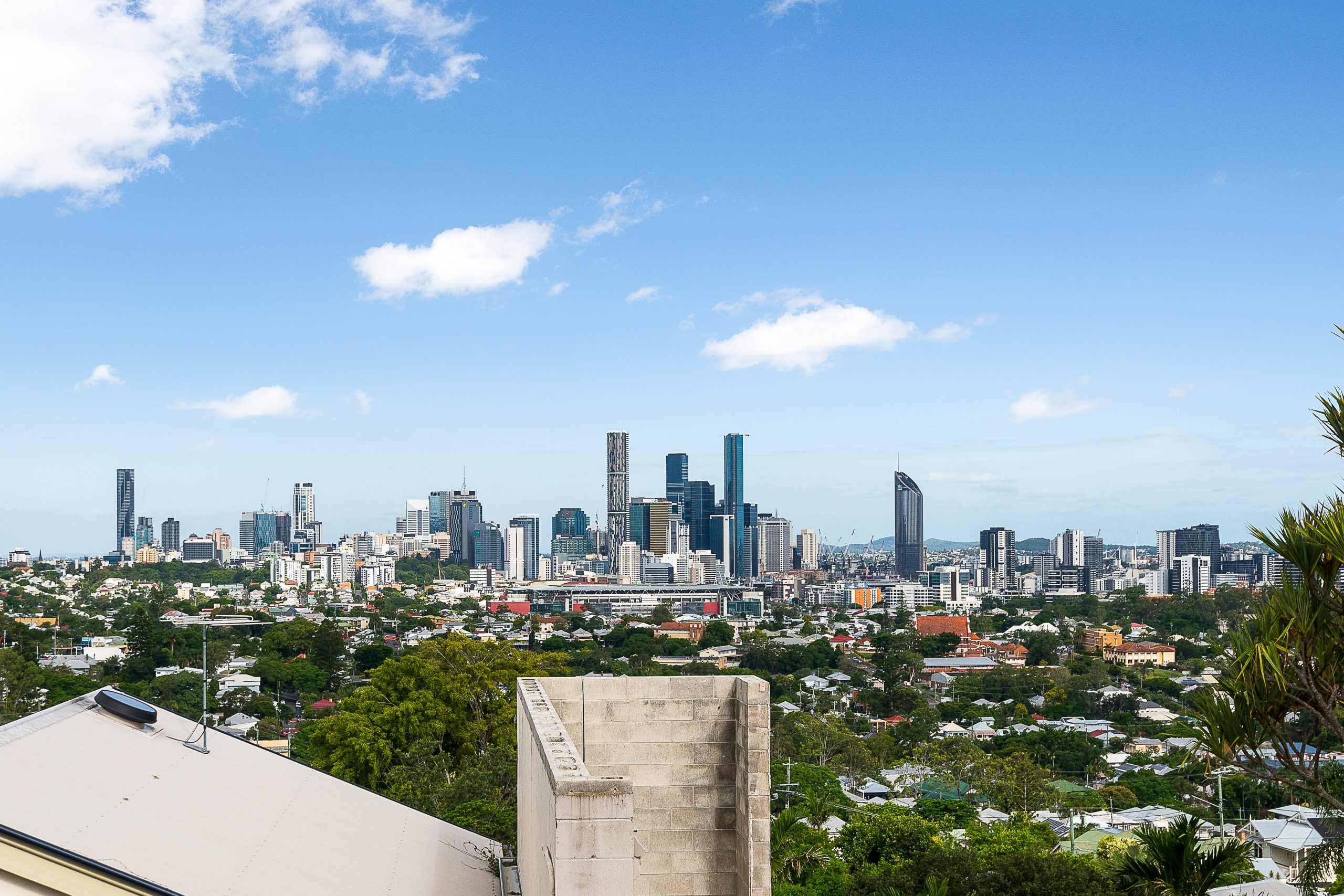The liveability of a house is dictated by far more than just the property itself. When you’re searching for houses for sale in Brisbane, there are many factors that will inform your final decision. To help you find the best way to go about searching for and shortlisting your ideal property, our expert team has identified the key criteria to guide your real estate decision-making process.
If you’ve started your property search online, then you’re likely to have used a range of keywords such as, ‘Real Estate Brisbane’, ‘Property In Brisbane’, ‘Brisbane Real Estate’, ‘Houses For Sale In Brisbane’ or something similar. The challenge ahead of you is to refine your choices to find your ideal home in the right suburb for a price you can afford. At Place Property, we pride ourselves on helping our clients through this process, so you can shortlist your ideal list of properties, make an informed offer and ultimately move into your perfect home.

BUYING YOUR IDEAL PROPERTY IN BRISBANE
When you live in a house, you also live in a community. Taking the time to understand the overall appeal of the suburb before buying a property in Brisbane could add significantly to your quality of living. You can evaluate a suburb on a range of different variables, including:
#1 Lifestyle: Are there local cafés, parks, or shops?
#2 School Catchments: This refers to the geographical location where students must live in order to be eligible for a certain state school’s intake. The popularity of some State Schools has significant impact of values of properties in its area. To match your Brisbane real estate selection with your desired school catchment, simply go to the Queensland Education Catchmap Map.
#3 Walkability: Walkability refers to how easily you can walk to nearby shops, cafés or public spaces, plus the appeal of local streets for pedestrian use. Leaving the car at home can have positive health, environmental and financial impacts, so it’s worth considering when you’re selecting your suburb. What does this mean for you if you’re searching for Brisbane real estate options? Matusik Property Insights previously did a study of roughly 89,500 private dwellings across 24 Brisbane suburbs. They found that places with higher walkability:
- Achieved higher prices
- Grew faster in value
- Attracted higher rents
- Had fewer vacancies
- Less properties listed for resale
- Resale listings sold faster
Work out your own Walk Score by visiting www.walkscore.com or discover Brisbane’s top 10 most walkable suburbs as determined by Homely.
#4 Public Transport: Plan your daily commute; how easily can you access public transport? Is there a nearby bus stop, train station, or ferry terminal?
#5 Sold properties and auction results: Increase your confidence in a suburb by searching into the sold properties and auction results in the area, equity growth throughout the district, and any other relevant investment data.
Before finalising your list of suburbs as part of your search for real estate in Brisbane, we recommend looking through our Suburb Guides (Link to Suburb Guides) which summarise the most relevant information to help you.
TIP: It’s best to start organising finance before you start looking for property in Brisbane. That way you can start narrowing down your real estate shortlist within your price range and avoid wasting your time with properties outside of your budget.
Everyone has something that matters especially to them, and no detail is too small. You might start your Brisbane real estate search by writing your own list of wants and needs and categorising that list into what is non-negotiable, and what you’re willing to compromise on.
Floorplans are a tremendously useful tool in this part of the process, because they enable you to assess whether or not your belongings will fit into the space available and they give you an idea of the overall flow of the home. Will all the children have a bedroom? Is there enough storage? Does the house have air-conditioning? Is the kitchen laid out practically?

REFINING YOUR BRISBANE REAL ESTATE SHORTLIST
Once you’ve got a shortlist of Brisbane houses for sale that tick all of the major boxes for you and your family, your next challenge is refining that list. To help you to ascertain which is the most suitable property in Brisbane for you, you’ll need to complete some additional research, and then complete a home inspection with the real estate agent listing the property.
Start by searching for the property on Google Earth and Google Maps to scout out the general neighbourhood and get a better idea of the exterior of the property. If you’re happy with what you see, call the agent to coordinate a time to personally inspect the property or attend an open for inspection. When you’re there, be sure to pay special attention to things such as:
- Configuration and functionality of property: Critically analyse whether or not the layout of the property works for you. Consider things that are important to you; how much natural light does the house get? Is the kitchen functional? Are the gardens/grounds likely to be high maintenance? Pool? Walkability to local shops and schools?
- Overall quality of the home: Check the structural integrity of the property. Having to replace or repair things isn’t necessarily a deal-breaker, but if a lot of things need work in order for the house to be livable for you, be sure you factor that into your budget so that you’re guaranteed to get value for your dollar. Ask the agent if the property has a recent Building and Pest Inspection Report you may have or arrange your own.
- Added extras: Are there any other added extras that benefit the home and your lifestyle like solar panelling, rainwater tanks, ducted air-conditioning that may not be visibly obvious but adds value to the home.
During the inspection, you will be provided by the agent with a brochure about the property. These brochures contain a lot of worthwhile and valuable information for buyers to easily access and utilise in further investigations. Such as the property’s Real Property Description (RPD) which is the legal description of the property and allows easy identification of the property, rates and water costs as well as floor plans, comparable sales and lease details if the property has been rented. It’s worthwhile asking the agent for any additional information they might have about the home, such as building and pest inspection reports and a current title search. You could also ask them a series of pre-prepared questions relating to the property that you feel are relevant. Agents are happy to assist you with information in relation to the property to help aid in your decision-making process.
If you are conducting a lot of property transactions and want property data at your fingertips consider subscribing to CoreLogic (RP Data), which is the biggest property information, analytics, and property-related risk evaluation provider throughout both Australia and New Zealand. For the most comprehensive Brisbane real estate searches, CoreLogic will certainly help you to be an informed buyer. A straightforward search on CoreLogic yields results on a range of different data metrics, including:
- The owner of the property
- If the listed house is owner-occupied or under lease
- How long it has been on the market
- If under lease, how much is being paid in rent
- Development potential and applicable land restrictions
- Where the property is positioned in relation to the street and wider suburb
The team here at Place Property have a desire to influence positive changes in the Brisbane real estate market by using our unrivalled expertise to educate buyers and sellers throughout the region. So if you’re in the market for a property, then talk to the Brisbane real estate experts at Place Property today.
What typically motivates a vendor to list a property for sale in Brisbane?
Several things can motivate a person to sell their property, and understanding those motives is important for buyers. For example, the vendor might be relocating or upsizing and prefer a longer settlement period while they search for their own property to buy. If, however, they have already purchased another property, chances are, they will prefer a quick sale turnaround.
A lot of houses for sale in Brisbane are listed for Auction. How do I know if I am getting value for money?
Only the housing market at the specific time of the auction can determine the value of the property, as in Queensland it’s illegal to provide someone with auction price predictions. This means that when there’s no predetermined price on a property in Brisbane, it gives both the seller and buyer the rare opportunity to reflect wholly on the state of the market at that particular point in time. This can empower buyers to pay what they genuinely believe the property is worth to them and gives sellers autonomy to accept or decline that amount. To make the decision-making process easier for buyers, we offer a vendor approved Comparative Market Analysis of at least three similar Brisbane real estate properties within a five-kilometre proximity that were sold within the last six months.
My shortlisted property has been listed for a while. What does that mean?
When a Brisbane real estate listing has been on the market for longer than expected, it is possible that the marketing campaign just isn’t quite right. Perhaps the house isn’t being targeted correctly, it’s not present on all of the right channels or the asking price is unrealistic. It’s worth asking your real estate agent more questions before assuming anything, as they can help you to understand all of the wider factors that might be impacting the listing.
Why do I need to organise finance before I start looking for Brisbane real estate?
The Brisbane real estate market moves quickly and is subject to regular change, so having your loan pre-approved before you start looking will enable you to jump on opportunities as soon as they present themselves. It’s also really important to have an understanding of all of the costs associated with purchasing a property in Brisbane, and to ensure that you preserve part of your budget for; government charges such as stamp or mortgage duty, legal expenses, solicitors’ fees, surveys and building certificates, loan application/establishment fees, building and pest inspections, and insurance.
